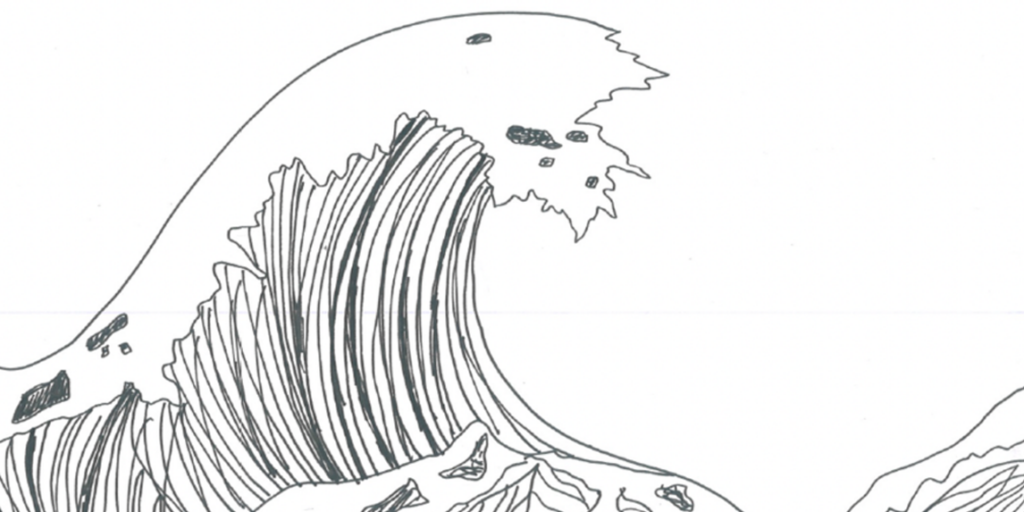Disclaimer about the title of the poem: ‘Die see is in ons bloed (The sea is in our blood)’, is a common saying, frequently used by the local fishers and coastal people across South Africa.
This poem was developed by Menka Vansant after conducting field work in Port Nolloth, Northern Cape, a small fishing and diamond mining town just south of the Namibian border. Small-scale fishers, a historically marginalized group in South Africa, were the predominant focus of this research, as their livelihoods are critical towards maintaining the health and sustainability of the ocean’s ecosystem, food and nutritional security, and cultural and spiritual heritage. South Africa is experiencing an influx of offshore oil and gas applications, which small-scale fishers have expressed deep concerns over, as the industry poses significant impacts for not just their livelihoods, but also climate change. This poem was written through the knowledge they shared and the stories they told. For example, they notice the shifting behaviors of whales and migration patterns of snoek (a traditional fish that West Coast fishers depend on). One fisher said that whales have become aggressive, and they get upset if their boats go too close to them. He attributed this behavioral change to global warming, as he said in the decades prior, the whales were peaceful if they fished near or around them. Marine creatures do not have a say in the human-driven developments, yet they are impacted by such activities. This poem was written from the perspective of marine species to seismic surveys, which is a mechanism to find hydrocarbon deposits through the use of air guns. Research on the impact of seismic surveys on marine life is contentious and often conflicting, but noise pollution has proven impacts on stress levels, communication and migration behavior, which may result in injury or mortality.

About the author
Menka Vansant is a PhD Candidate in Environmental Science at the University of Cape Town. Her dissertation research focuses on conflicts between small-scale fishers and offshore oil and gas development along the West Coast, as well as an analysis of South Africa’s ocean economic development activities in light of the Just Energy Transition Plan (JETP) and climate change agreements. As an Economist with expertise in science and technological policy and innovation strategy, she is passionate about creating and implementing solutions that help meet UN Sustainable Development Goals.
